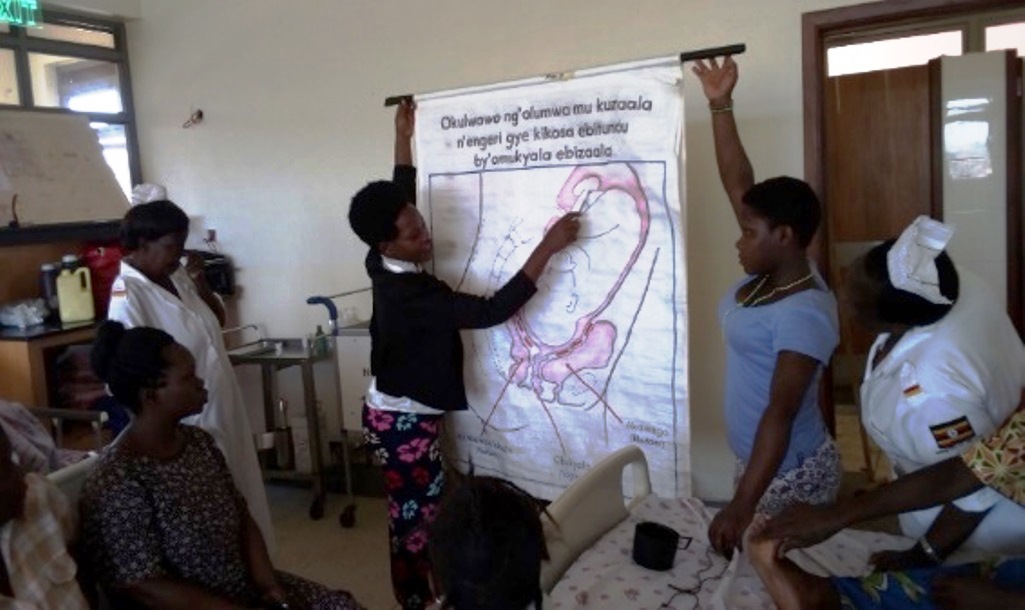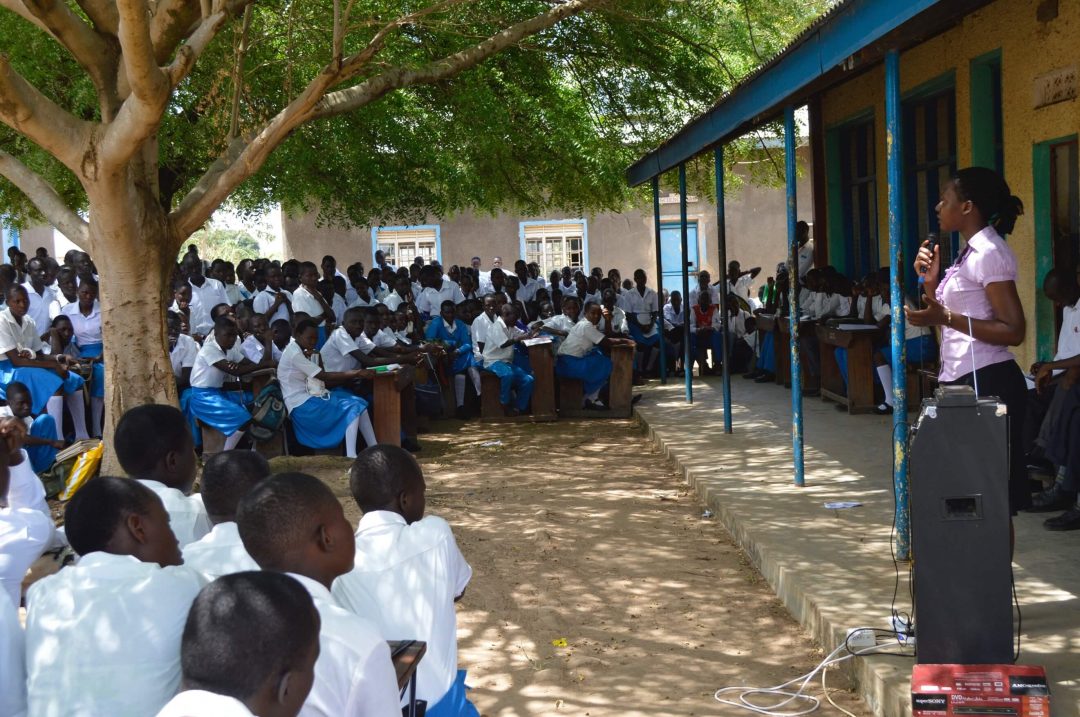
Alice Emasu is a young entrepreneur from Uganda passionate about gender equality and social justice. She’s the Founder and Executive Director of TERREWODE, a non-government organization that has led the campaign to eliminate obstetric fistula condition and act as a catalyst for improving maternal and child health in Uganda.
“Leveraging on strategic partnerships with the Ugandan Ministry of Health and various partners including private hospitals, TERREWODE increased awareness, resulting in access for all women and girls suffering fistula and requiring treatment. Despite these successes, many women and girls who are incontinent are yet to access treatment. It is estimated that there is a backlog of 200,000 cases; and 1,900 new cases occur annually. However, the country’s capacity to treat obstetric fistula is calculated at only 2000 cases annually. In addition, many Ugandans live below USD 1 per day and cannot afford the expensive obstetric fistula treatment, which averages at USD 300 per patient. Our women’s fistula hospital responds to the above needs. This specialized hospital also desires to create a safe environment where expectant women will receive educational information including family planning, parenting classes, maternal self-care, and delivery services” said Alice.
She has enrolled in the 2nd edition of the E4Impact MBA in Kampala at Uganda Martyrs University to give a boost to her business and launch TERREWODE Community Women’s Hospital (TWCH). It will be a highly specialized women’s hospital to restore lives of women suffering from the tragic birth injury of obstetric fistula and other related conditions. This is the first of its kind in Uganda, and the third in Africa. The hospital will house a 30 bed maternity block, 30-bed surgical block, a 30-bed social reintegration block and associated support services including, physiotherapy, laboratory, pharmacy, administration, staff quarters, kitchen, and laundry facilities.
“The hospital aspect of my business required further knowledge and skills. TERREWODE’s hospital project presented a new set of challenges for me in terms of strategic thinking, communication, human and financial resources, governance, and general management. I needed the skills to continue to be a successful leader and create a hospital that meets many; urgent needs.”
1.How was your business idea born?
I visualized this hospital when two of my girlfriends suffered from obstetric fistulae and I was emotionally impacted by the loss of four friends who succumbed to preventable maternal mortality. These unfortunate circumstances inspired me to break the silence on obstetric fistula by founding TERREWODE. For the last 15 years, TERREWODE has implemented a comprehensive obstetric fistula program in partnership with the Ugandan Ministry of Health. It has established a diverse vibrant community volunteer network to raise awareness, identify, refer and support women for treatment and socially reintegrate them back in their communities.
There is a backlog of 200,000 cases of obstetric fistula; and 1,900 new cases occur annually. However, the country’s capacity to treat obstetric fistula is calculated at only 2000 cases annually.

2.How can your business improve the life of the beneficiaries of your activities?
The TWCH will serve women and girls suffering obstetric fistula and other childbirth complications, including, expectant mothers and their babies, and those who need social reintegration services including physiotherapy after surgery. On average, a woman lives with obstetric fistula for 5 to 10 years. Often, many of these women and girls are ignorant about the cause of obstetric fistula. In addition, they do not know where to access treatment. While suffering with fistula, they are stigmatized heavily. Their families abandon them, and they are forced to live in reclusion. Sometimes they are sent away from home; and more often, lose property such as land. Establishment of the specialized hospital will ease the trauma of waiting for years to access treatment.
The TWCH will conduct outreach awareness services at community levels to identify and refer women and girls suffering from childbirth complications for treatment services at the Hospital. It will increase access to treatment, reducing the affected woman’s long waiting time. It will also provide social reintegration services to reduce stigma associated with fistula, empowering the women to fight the poverty. Obstetric fistula is both a cause and a result of living without finances, education, and resources.
3.What has been the main challenge you had to overcome in your entrepreneurial experience?
Gender inequality has been the major challenge for TERREWODE in gathering financial resources. Due to Uganda’s patriarchal society, the obstetric fistula has remained a silent women’s struggle, affecting national budgetary allocation and policy enforcement. TERREWODE’s continuous advocacy and lobbying has brought obstetric fistula to the national agenda and initiated strategic partnerships with the Ministry of Health, the United Nations Fund for Population Activities, the United States Agency for Development, Amref Health Africa and EngenderHealth.
4.Is there a person you are inspired by, i.e. an entrepreneur or a particular mentor?
My mother was married to a village chief, upon his death she became the household head with six young children to care for. She had neither formal education, nor money to cater for her family. As a widow, she was relegated to activities that were traditionally domains for men: building and roofing houses, clearing forests roads, and fending for her family. Typically, succession chiefs stripped her of dignity, forcing her to work hard labour. However, she never allowed in her miseries. I’ve learned how to remain cool under pressure and focus on strengths because of her example. Whenever I face obstacles, I remember how this rural woman, my mother with no formal education, managed.
Later in life, I was inspired by Dr. Catherine Hamlin, founder of the Hamlin Fistula Hospital in Ethiopia, the first such specialized women’s hospital in Africa. I was impressed by this determined woman’s insights into obstetric fistula even before meeting her. Dr. Hamlin is an incredible worldwide woman leader who believes in the power of emancipating women through better health services. Her hospital is a sustaining and proven format that TERREWODE is proud to model.

5.What would you suggest to a new born entrepreneur?
A new born entrepreneur should start small and grow steadily. They should be ready to make sacrifices and forego personal gratification, instead investing the profits back in the business to allow it to grow. Making mistakes are part of business, but also a source of learning. The new entrepreneur should always search for knowledge. A well-rounded knowledge of their markets is recommended. They should give of their time, skills, and energy as part of the start -up capital for a business.
6.Could you tell us a particular satisfactory moment you had in your entrepreneurial activity?
As an entrepreneur, I was extremely delighted in acquiring land for the specialized women’s hospital and receiving a big chunk of the capital money from the International Fistula Alliance. I hope that my next satisfactory moment will be receiving additional needed funding to create maternity services from your organization!
7.Could you tell us how the MBA has helped you and your business?
The two years duration of the MBA program is appropriate given that the majority of the target audience are entrepreneurs with responsibilities. It allows ample time for them to learn skills and apply them in their businesses. The MBA has guided me in making a market analysis, baseline survey, and a marketing plan for our specialized hospital. I have learnt about governance and corporate issues. The MBA has helped me conceptualize budgeting for the facility. It has helped me clarify objectives, draft concept notes, define the market, and understand the competitors for the hospital. I was able to put together a business plan, which I shared with business partners. Even as a student in the MBA program, I was able to fundraise for the facility.
I have now a clear understanding of my business model. I have projected revenue for the business, and required financial assistance. I have an idea of how long it would take the business to break even. The MBA has helped me to understand which type of governance is appropriate for my business and the necessary human resources it requires. The MBA will steer setting up and the administration of the hospital in a timely fashion.
The MBA program has also added value to my role. I have for instance been overseeing a staff of ten people, a board of eleven, and reaching out to about 300 women annually and, in the future, I will be overseeing anywhere between 20 and 30 staffs or more and about hundreds fistula patients, expectant mothers and their families.
Learn more on TERREWODE
Facebook page: @Terrewode

